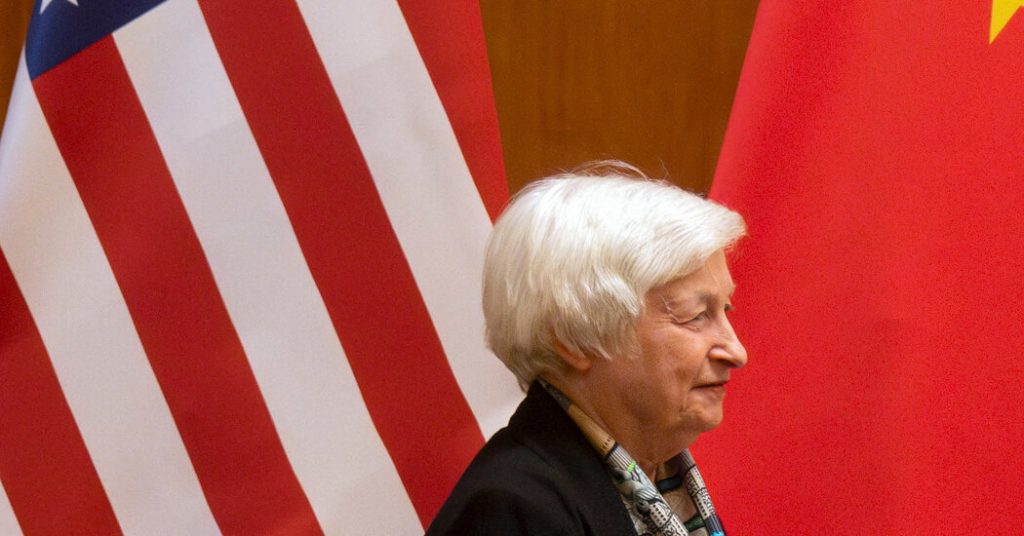When Treasury Secretary Janet L. Yellen visited Beijing last year, she aimed to rebuild communication and stabilize economic relations between the U.S. and China. Formal economic working groups were established to facilitate ongoing discussions. Despite progress, key economic issues still divide the two countries. As Yellen prepares for meetings in Guangzhou and Beijing, topics of discussion will include global economy outlooks, concerns regarding China’s green energy exports and barriers to Chinese investment in the U.S.
One major issue on the agenda for Yellen is the surge in heavily subsidized green technology exports from China. These exports have raised concerns in the U.S., where significant investments are being made to develop similar industries. Yellen has hinted at potential trade actions to protect American clean energy sectors from being undercut by China’s practices, such as new tariffs on imports from China. China’s focus on factory production has resulted in a rise in exports, causing tensions not only with the U.S. but also the EU.
Another contentious topic is the tariffs imposed by the U.S. on Chinese products, which remain a sore point in the relationship. Despite acknowledging that tariffs are a burden on consumers, Yellen has not indicated plans to roll back the existing levies. There is consideration of relaxing some tariffs on U.S. consumers while implementing new ones targeting China’s green energy exports. In addition, a potential new round of solar tariffs could be implemented this summer.
The issue of cross-border investment is also a significant concern, with both the U.S. and China facing challenges in attracting and retaining foreign investment. American companies in China have reported harassment and increased scrutiny, leading to uncertainties for foreign firms operating in the country. China has attempted to reassure investors by removing restrictions on foreign investment and emphasizing economic reform, but concerns persist about the business environment in the country.
Sanctions have been increasingly directed at China by the U.S., with recent measures targeting China’s hacking units and concerns about its dealings with Russia. Yellen has emphasized the importance of China not aiding Russia in sanctions evasion. Additionally, technology restrictions imposed by the U.S. on the sale of advanced computing chips to China have sparked criticism from Beijing, which sees these controls as attempts to limit China’s technological advancement.
The ongoing economic tensions between the U.S. and China are complex and multifaceted, with disagreements on issues ranging from trade practices and tariffs to cross-border investment and technology restrictions. As Yellen heads to China for meetings, the discussions are expected to cover a wide range of contentious topics, highlighting the challenges in reaching common ground and fostering a more cooperative economic relationship between the two global powers.


